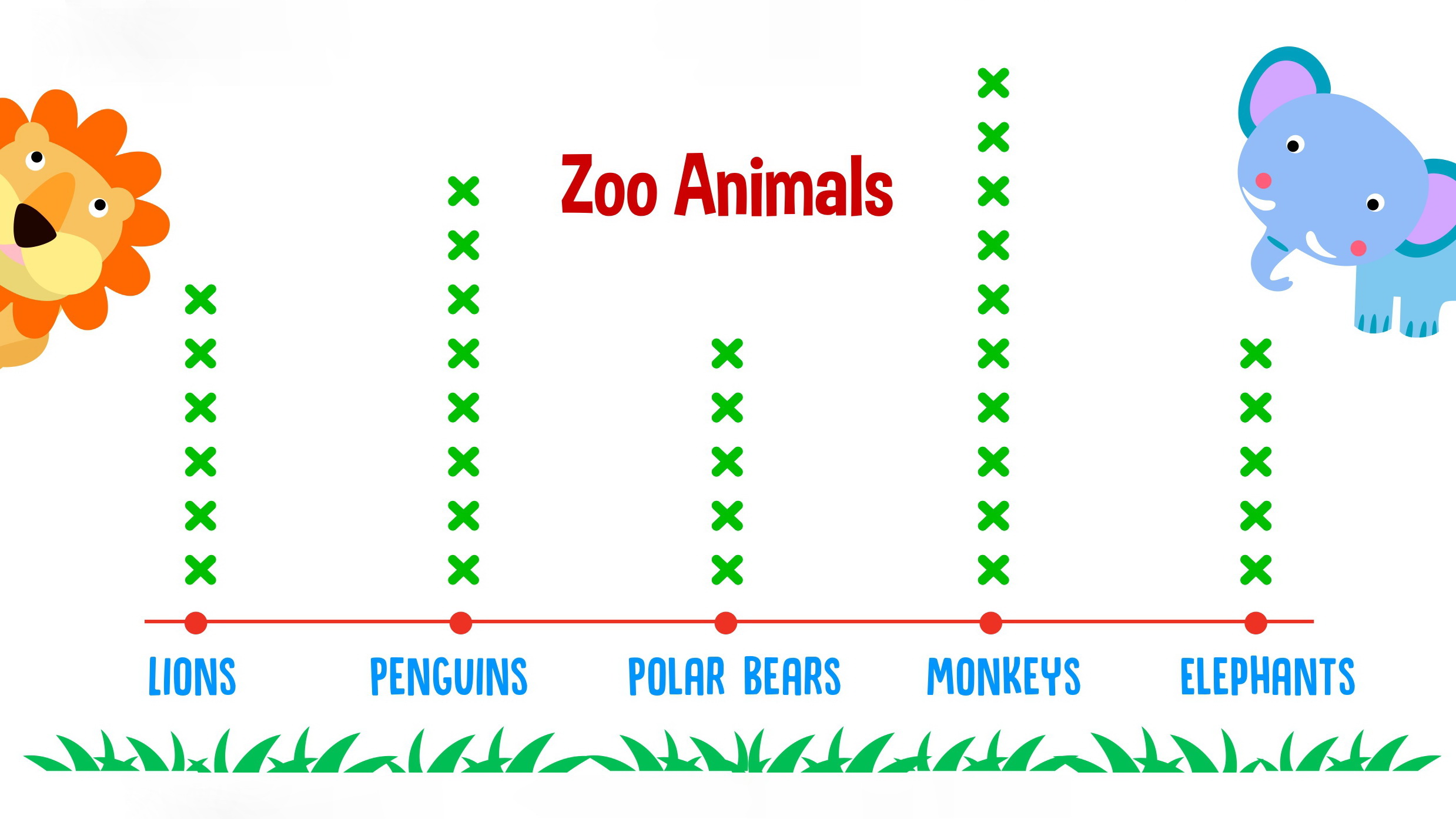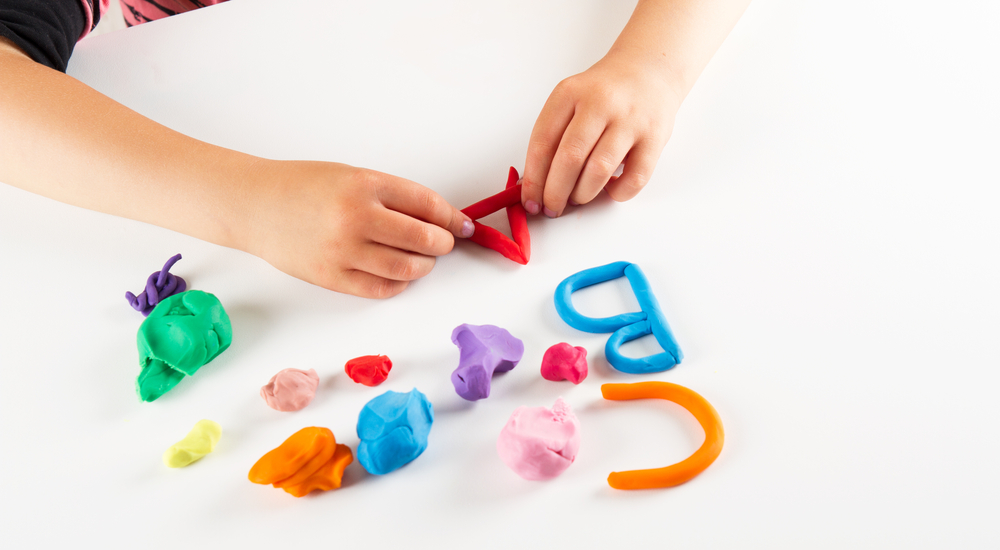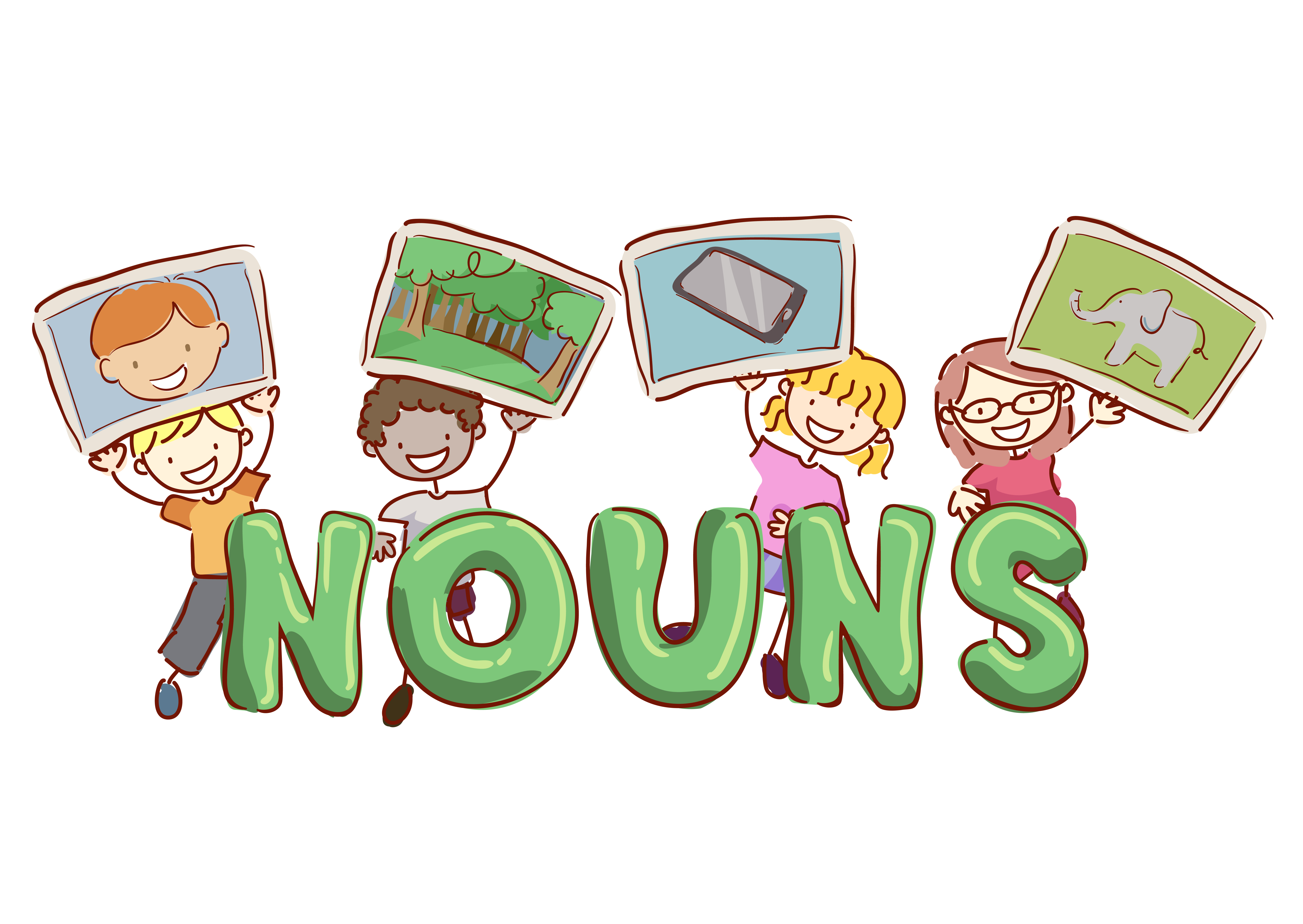Writing worksheets activities for Ages 5-9
8 filtered results
-
From - To
Discover engaging writing worksheets tailored for children aged 5-9, designed to enhance their literacy skills through fun and interactive activities. Our comprehensive collection offers creative prompts, structured sentence practice, and story-building exercises that spark imagination while reinforcing fundamental writing concepts. Each worksheet is age-appropriate, encouraging kids to express their thoughts and develop their writing confidence. Perfect for classroom use or at-home learning, these resources promote essential skills in spelling, grammar, and composition. Explore a variety of themes and formats that keep young learners motivated and eager to write. Boost your child's writing journey with our dynamic worksheets today!
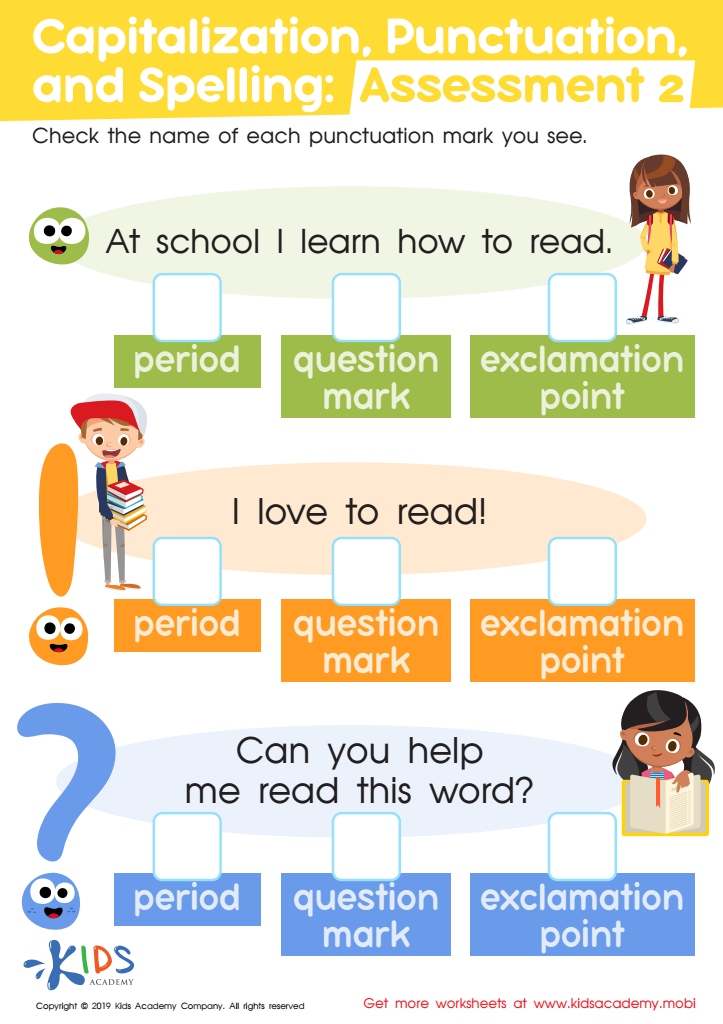

Capitalization. Punctuation. Spelling: Assessment 2 Worksheet
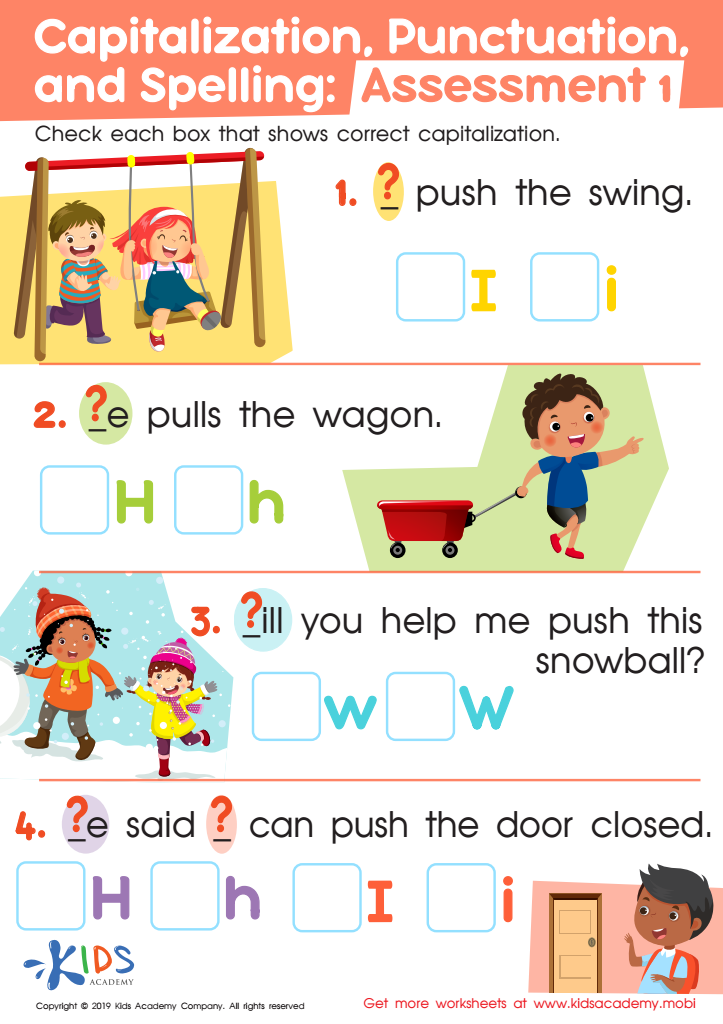

Capitalization. Punctuation. Spelling: Assessment 1 Worksheet
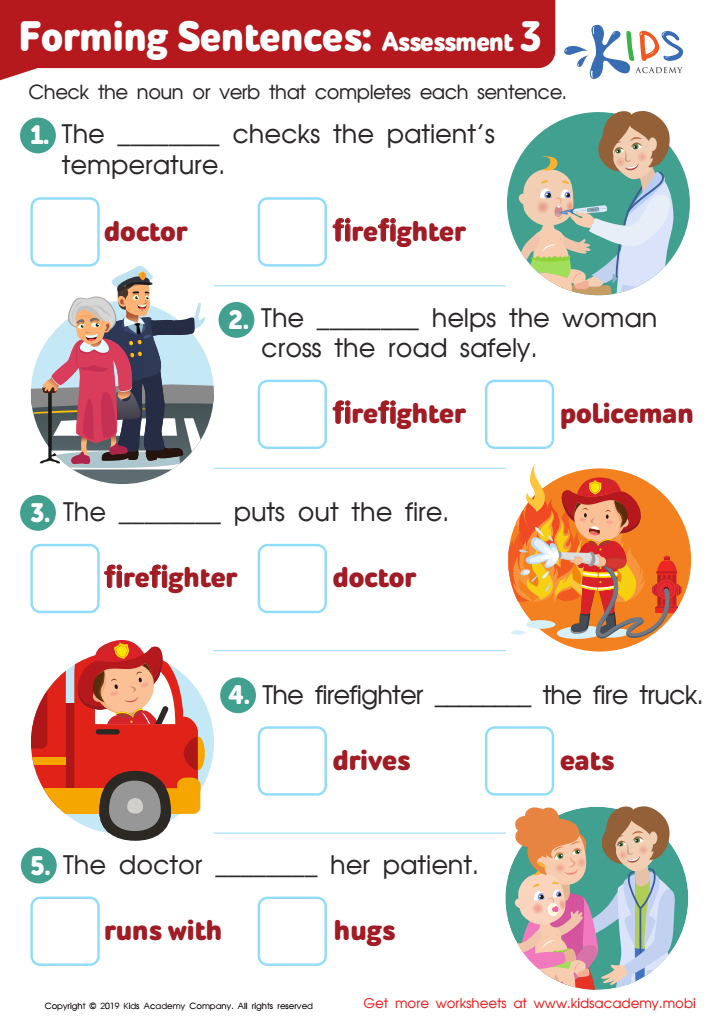

Forming Sentences: Assessment 3 Worksheet
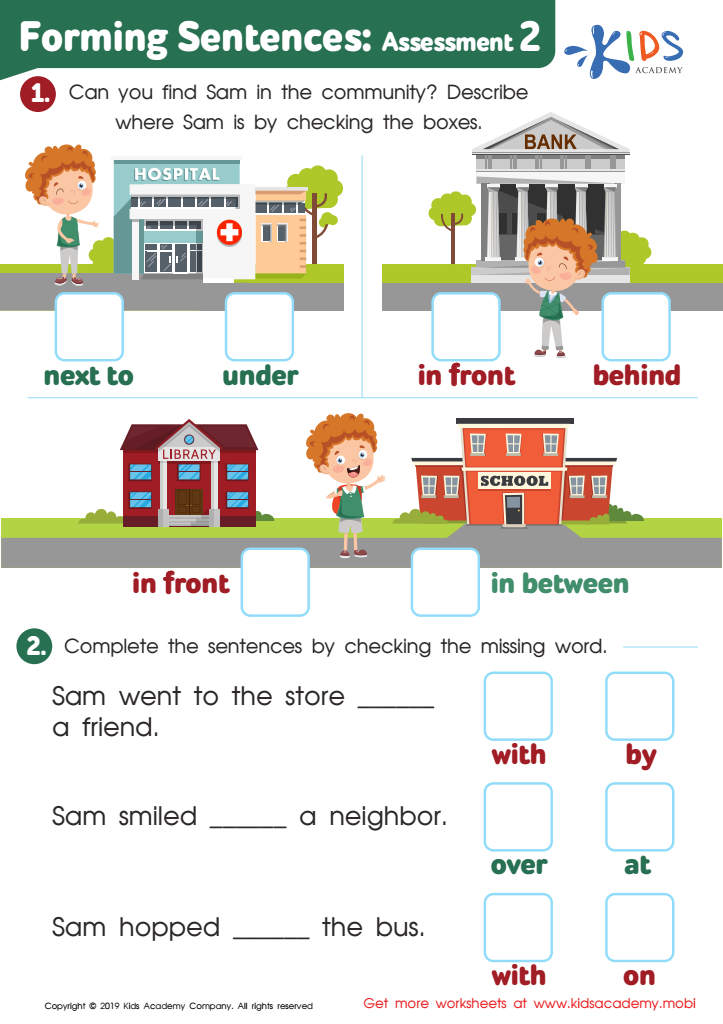

Forming Sentences: Assessment 2 Worksheet
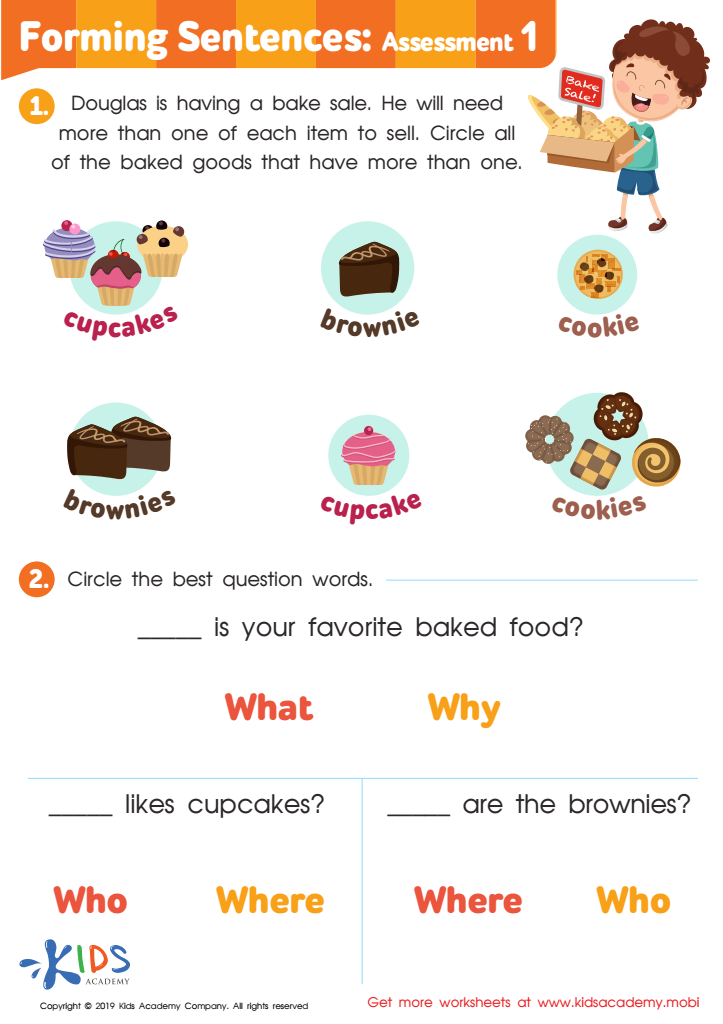

Forming Sentences: Assessment 1 Worksheet
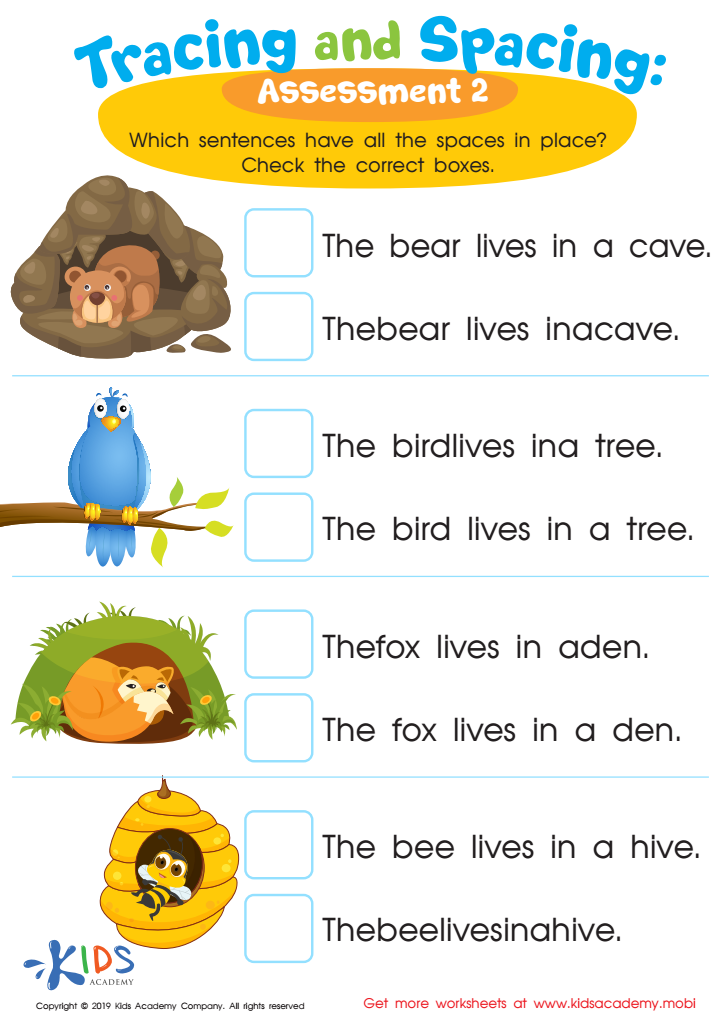

Tracing and Spacing: Assessment 2 Worksheet
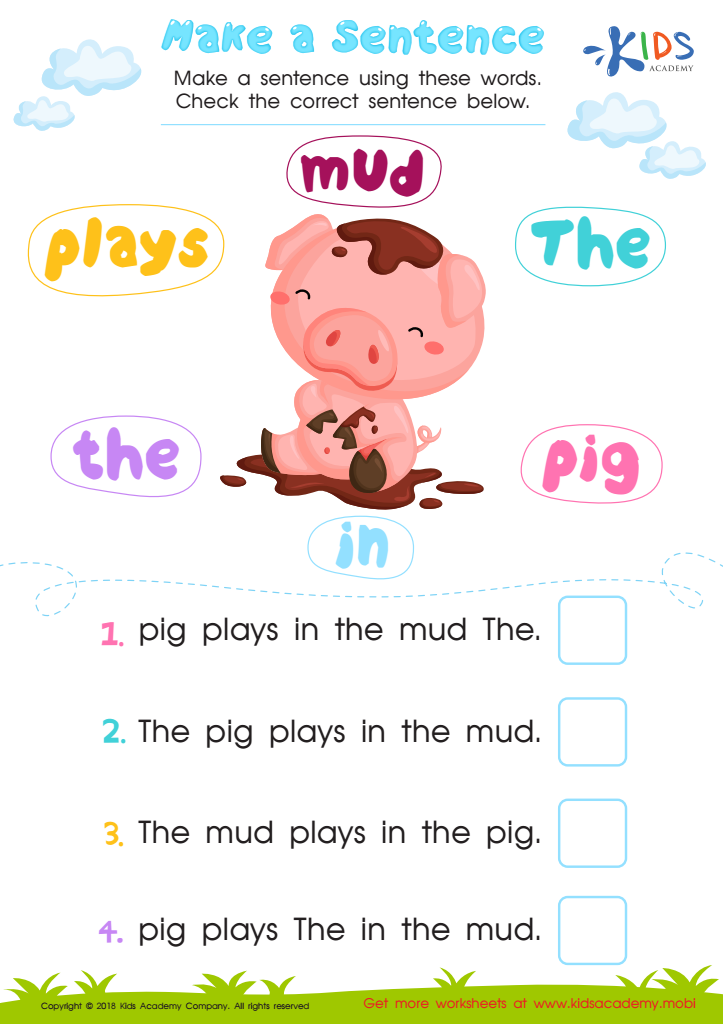

Assessment: Make a Sentence Worksheet
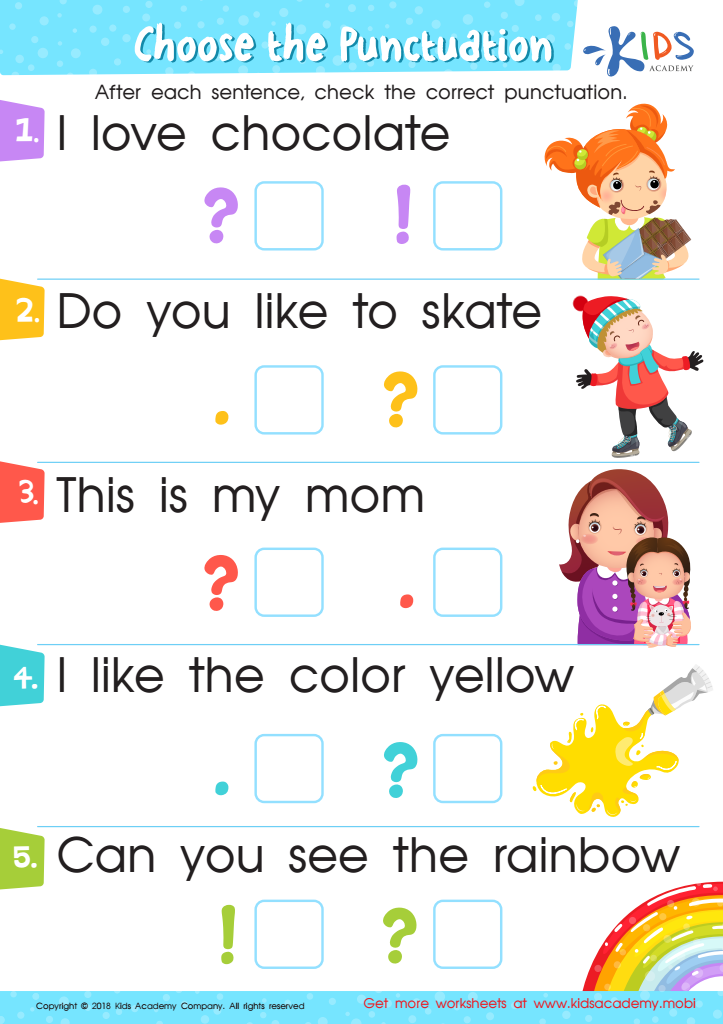

Choose the Punctuation: Assessment Worksheet
Writing activities for children aged 5-9 are crucial for their overall development and should be a priority for parents and teachers alike. During these formative years, children are building their foundational literacy skills, which are essential for effective communication and critical thinking. Engaging in writing activities boosts their vocabulary, enhances their understanding of sentence structure, and fosters creativity.
Moreover, writing helps children express their thoughts and emotions, providing them with a valuable outlet for self-expression. By encouraging children to write stories, letters, or journals, parents and teachers can cultivate a love for storytelling and reading. This age group is particularly receptive to language and learning, making it an ideal time to introduce diverse writing genres.
Additionally, writing activities can strengthen fine motor skills, such as grip and coordination, as they practice holding pencils and forming letters. Collaborative writing tasks, such as group stories, also promote social skills and teamwork.
By emphasizing writing in this age group, we equip children with essential tools for academic success and lifelong learning. Ultimately, prioritizing writing activities enriches children's educational experience, contributing to their confidence, literacy, and critical thinking skills as they navigate the world around them.
 Assign to My Students
Assign to My Students



